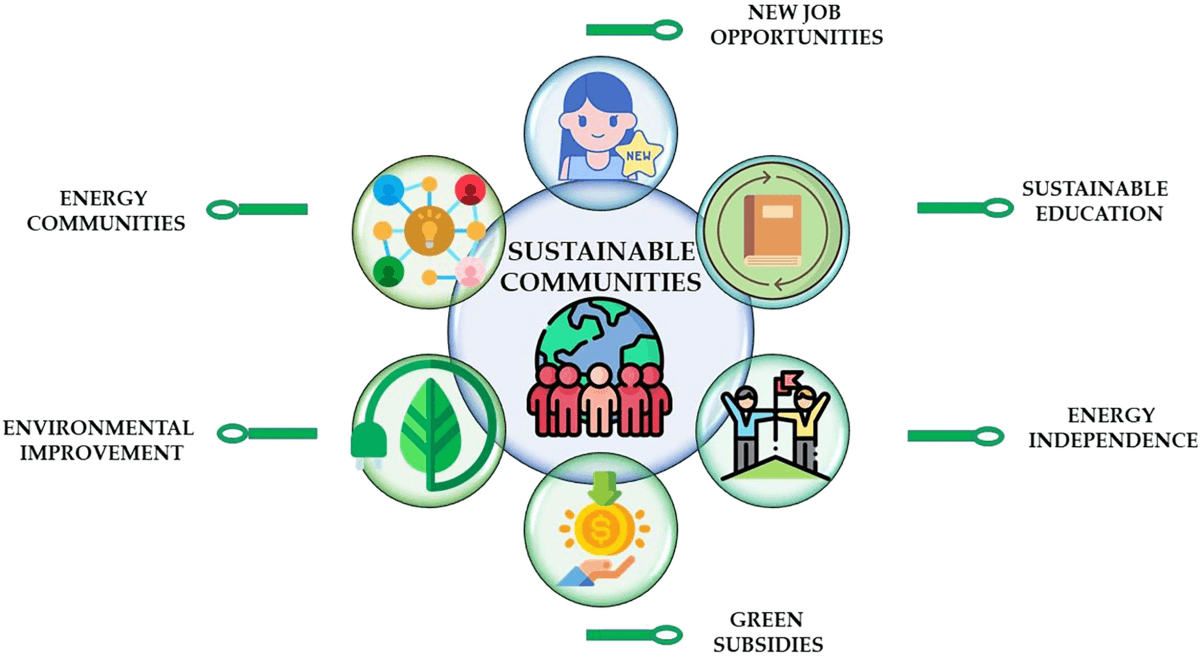How Holistic Schools Foster Environmental Responsibility and Sustainability in Students
In a world facing urgent environmental challenges, education is no longer just about textbooks and exams. It's about preparing students to be thoughtful, conscious citizens. This is where Holistic Development in Education comes into play. By focusing on the overall growth of students, intellectual, emotional, physical, and ethical innovative schools are cultivating a new generation committed to sustainability.
The best schools in India are reimagining education through value-based education, creating classrooms that not only teach facts but also foster compassion, awareness, and action toward global environmental issues.
What is Holistic Development in Education?
Holistic Development in Education focuses on nurturing every aspect of a student’s personality. Rather than focusing solely on academic achievement, this approach includes:
Emotional Intelligence: Teaching empathy, mindfulness, and resilience.
Social Responsibility: Encouraging teamwork, communication, and community service.
Physical Wellness: Promoting health through sports, yoga, and nutrition awareness.
Ethical Values: Embedding principles such as honesty, compassion, and respect for nature.
Creative Thinking: Inspiring innovation through arts, music, and open-ended inquiry.
By addressing these diverse areas, students gain a stronger sense of purpose and responsibility—especially toward the environment.
How Innovative Schools Drive Environmental Awareness
Innovative schools are those that break away from rote learning and create experiential, student-driven environments. When it comes to sustainability, they:
Integrate Environment into the Curriculum
Teach ecological topics across subjects—science, geography, literature, and even mathematics.
Use case studies and local examples to make learning tangible and relatable.
Encourage Project-Based Learning
Students create actionable projects such as composting programs or plastic audits.
They research local environmental issues and propose real solutions, making learning practical and impactful.
Promote Nature-Based Learning
Use outdoor classrooms and field trips to build a personal connection with the natural world.
Activities like gardening, nature journaling, and bird watching foster environmental appreciation from a young age.
Adopt Sustainable School Practices
Encourage eco-friendly habits like recycling, saving water, and reducing electricity use.
Create awareness through green days, environmental clubs, and school-wide sustainability campaigns.
The Role of Value-Based Education in Building Sustainability
Value-based education doesn’t just tell students what to learn, it teaches them why it matters. When tied to sustainability, this educational approach is powerful because it:
Builds a Moral Compass
Students learn that protecting the Earth isn’t just a responsibility, it’s a moral imperative.
Discussions around ethical consumption, conservation, and social justice create a deep-rooted sense of purpose.
Encourages Lifelong Habits
Lessons in values are reinforced through daily behavior-turning off lights, minimizing waste, speaking up for the planet.
These habits go beyond the classroom and into students' homes and communities.
Fosters Accountability
Students are guided to take ownership of their choices and understand the broader impact of their lifestyle.
Peer-led activities build leadership and the confidence to be agents of change.
Practical Ways Holistic Schools Foster Sustainability
To embed sustainability meaningfully, the best schools in India with holistic frameworks focus on:
Experiential Activities
Hands-on learning like building rainwater harvesting models or conducting environmental surveys.
Encourages critical thinking and real-world problem-solving.
Reflective Practices
Students reflect on their interactions with nature through writing, storytelling, and open dialogue.
Develops a personal connection to environmental issues.
Community Outreach
Students participate in local cleanups, tree plantations, and awareness drives.
Strengthens civic responsibility and engagement.
Mindfulness and Gratitude Exercises
Teaching students to appreciate the planet, slow down, and respect the natural world.
Deepens emotional intelligence and environmental ethics.
Benefits of Holistic and Sustainable Education
Adopting a holistic, value-based approach toward environmental responsibility offers benefits that last well beyond the classroom:\
Deeper Engagement
Learning becomes meaningful, as students see real-world relevance.
Higher Retention
Active participation helps students internalize lessons more effectively than passive memorization.
Informed Citizenship
Students grow up to be eco-literate adults who make responsible choices.
Improved Wellbeing
Nature exposure, mindfulness, and purposeful education contribute to mental and emotional health.
Positive Social Impact
When values are shared, communities evolve. Students influence peers, families, and society at large.
FAQs
Q1: What is Holistic Development in Education?
A: It’s an educational approach that nurtures every aspect of a student’s personality—intellectual, emotional, physical, ethical, and social—preparing them for life, not just exams.
Q2: How are innovative schools different in promoting sustainability?
A: They move beyond theory by integrating environmental issues into real-world projects, daily school practices, and community involvement, making sustainability a lived experience.
Q3: Why is value-based education essential for environmental responsibility?
A: It instills compassion, ethics, and a deep sense of purpose, turning students into conscious citizens who care about their planet.
Q4: What are some ways schools can promote sustainable habits?
A: Through recycling programs, zero-waste lunches, water conservation efforts, tree planting, and integrating environmental awareness into all aspects of school life.
Q5: What long-term impact does holistic education have on students?
A: It shapes them into critical thinkers, responsible leaders, and lifelong advocates for sustainability—prepared to make thoughtful, impactful choices in life.
Final Thoughts
Holistic Development in Education is more than a buzzword—it’s a solution. By combining innovative teaching methods, value-based education, and a strong environmental ethic, the best schools in India are shaping students who don’t just learn about the world—they learn how to protect it.
When education meets purpose, sustainability becomes second nature.

